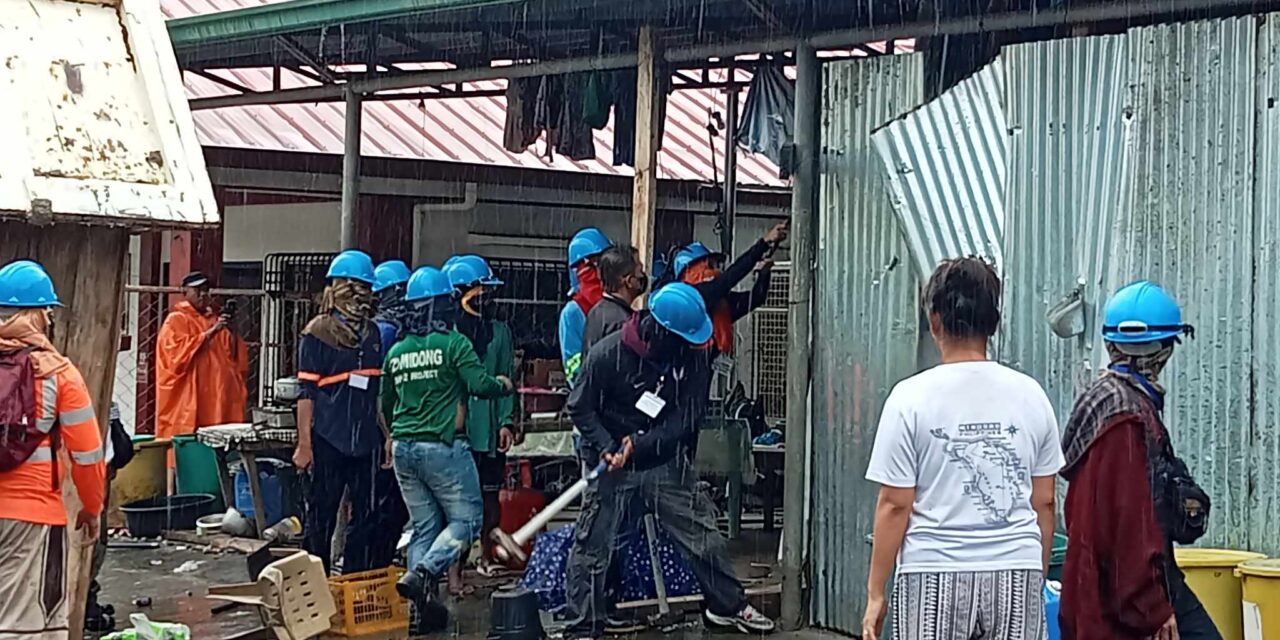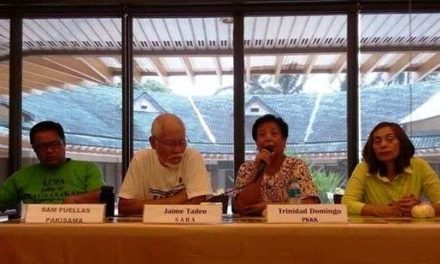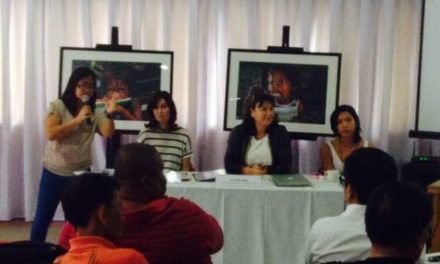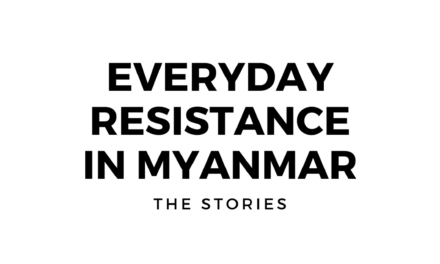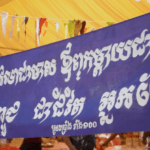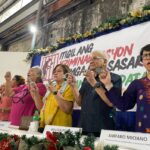PHILIPPINES—Amid heavy rains, more than 70 families from Barangay Sumalo located in the Municipality of Hermosa in Bataan Province were forcefully displaced by local police from their makeshift shelters in the village basketball court, which serves as an evacuation center. The demolition started around 10AM and ended at around 11:30AM.
Barangay Sumalo is currently embroiled in an agrarian dispute between farmers organized under the Samahan ng Nagkakaisang Mamamayan ng Barangay Sumalo (SANAMABASU) and the Riverforest Development Corporation (RDC).
The Department of Agrarian Reform (DAR) had sent a letter today requesting the Department of the Interior and Local Government (DILG) Secretary Benjamin Abalos Jr. to direct the Hermosa local government to allow the SANAMABASU farmers to stay in the covered court until the pending agrarian case is resolved.
Many of the farmer families under SANAMABASU have been forced to reside in the covered court since the height of the pandemic in 2020. This was after their homes were demolished as a result of the ejectment cases filed by the Riverforest Development Corporation (RDC).
The RDC has been claiming ownership of over 213 hectares of land in Barangay Sumalo. This includes the land where the farmers charged with ejectment are residing.
Protracted land struggle
The land dispute in Sumalo began in the late 1970s after the Litton family allegedly bought 213 hectares of land covering the entire area of the barangay.
In 1988, following the passage of the Comprehensive Agrarian Reform Law, the Sumalo farmers filed for coverage. In response, the Littons submitted an application to the Department of Agrarian Reform (DAR) to have the agricultural land converted for commercial use. Since then, the Sumalo farmers had been locked in a legal battle, culminating in a 2006 Supreme Court Decision that favored Litton’s pursuit for land conversion.
However, the Littons—operating through the Riverforest Development Corporation (RDC)—failed to introduce substantial developments in the land over the next five years. Consequently, in 2013, the DAR opened the disputed land for government acquisition and redistribution. This was in accordance with the rules for land conversion that a landowner shall have only five years upon the issuance of a conversion order to develop the property approved for conversion.
But a caveat in the 2013 DAR resolution is that while it revoked the conversion order for agricultural areas, it sustained the conversion order in areas where residential houses, buildings, and similar structures are found. As such, the RDC used this as grounds to file ejectment cases against the SANAMABASU farmers and declare them as “unlawful detainers.”
Despite the retention of the conversion order for the residential areas, the RDC still filed an appeal at the Office of the President (OP) to reinstate the conversion order for the agricultural areas as well.
In 2020, the OP issued a decision denying Litton’s appeal and reaffirming the land distribution process under agrarian reform. The Littons once again appealed the OP decision at the Court of Appeals.
Meanwhile, the Registry of Deeds had issued a title in the name of the Republic of the Philippines (RP Title) for 155 hectares of agricultural land in Sumalo in 2021. This meant that the said land had already been placed under government ownership and will then be redistributed to the agrarian reform beneficiaries.
However, in 2023, the Court of Appeals issued a decision reversing the 2020 OP decision and reinstating the land conversion order in favor of the Littons.
Right to secure shelter
The SANAMABASU farmers are distraught by the destruction of their makeshift shelters amid the ongoing agrarian land dispute. They lament that they have nowhere to go since their homes had been demolished, and now they have also been forced out of the evacuation site.
The relocation site offered to the displaced families is located in the Municipality of Dinalupihan, far from their jobs and source of livelihood in Sumalo. The SANAMABASU farmers are thus calling on the government to respect and protect their right to housing, as they cannot till their lands and produce food for their communities and the country without secure shelter.
Human rights organizations supporting SANAMABASU assert that the enforced displacement that happened in Sumalo belies the claims of the Marcos administration that it supports the emancipation of agrarian reform beneficiaries in the interest of social justice.
The farmers mourn that the enforced displacement will worsen the humanitarian crisis in Sumalo. They recounted how the whole community has been left traumatized and fearful after being rendered homeless, landless, and jobless.
On top of this, the members of SANAMABASU have also endured intense legal harassment. To date, around 50 cases have been filed against them. The farmers believe that these are aimed at undermining their land rights claims. Victims of legal harassment include community leaders and their children, women, and even senior citizens.#
For more information please contact:
Loida Amon: 0930 579 2399
Joval Kisinamal: 0950 336 8754
Domingo Sanchez Jr: 0970 848 5163

